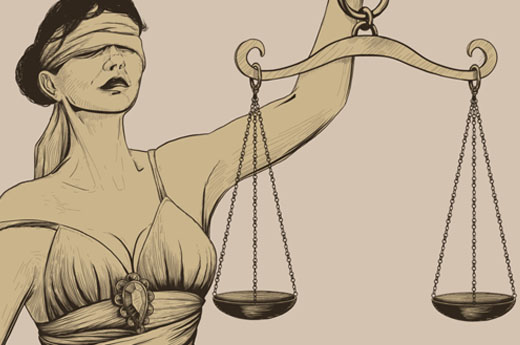
by guest blogger Renee James, essayist and blogger
Despite my relentless pragmatism, I am, inexplicably, a big believer in signs. For the past several months, and very specifically for the past few weeks, I feel like the universe is trying to get me to pay attention and learn a lesson. So let’s start with this one, shall we?
Here are two words that seem to keep me up at night: accept and settle. Do they mean the same thing? Are there nuances that make a difference? Let’s start with the basics—entries on dictionary.com read as follows:
Accept 1. to take or receive (something offered); receive with approval or favor…
2. to agree or consent to; accede to…
Settle 1. to appoint, fix, or resolve definitely and conclusively; agree upon….
So, what have we learned? Both indicate agreement of some kind; both of them seem to indicate a shared thought/experience/consequence that all parties favor. Still, they feel different to me. Why does “accept” feel so positive and “settle” feel so underwhelming and sad? Moving on…
Following the onset of my accept/settle conundrum, I read an interview with playwright/actor Tracy Letts. He talked about not marrying until he reached his late 40s, and explained it this way: “I think there comes a point in your life where you own your damage. You don’t necessarily get over it, you don’t necessarily have it all figured out, you just say this is mine, these are things I have to be aware of, take care of, work around.”
This was one of those moments when reading something stopped me cold. Maybe now was the time in my life when I should finally own—or accept—my damage. Maybe now was the time to try to stop “fixing” everything I found “less than” about myself.
As I go about the days that make up the second half of my life, it’s about time I stop battling the damage, blaming the damage, and denying the damage, and instead, co-exist with it as productively as I can.
Or is that settling for less than I can (or should) be? Then again, “should” is a horrible word itself—so filled with remorse and disappointment. Moving on…
For no discernible reason, I plucked Philip Simmons’ wonderful book, Learning to Fall, off our bookshelf last week. In the forward, I read the following: “As I see it, we know we’re truly grown up when we stop trying to fix people. About all we can really do for people is love them and treat them with kindness. That goes for ourselves, too. That goes for ourselves especially… Accepting ourselves means accepting the whole package, the whole sour and sweet, lovely and larcenous mess that we are.”
There’s that acceptance idea, again. The notion that not every bit of us is pristine and pure, but every bit of us is worth accepting. It’s Tracy’s philosophy expressed a bit more poetically, about owning your flaws and realizing they are an integral part of you, not stray puzzle pieces that don’t fit. And that all sounds delightful, but really, how many of us love our flaws? And what does this say about self-improvement? Do we stop trying to learn how to hit a slider, knit a sweater, or speak conversational French? Moving on…
Back to my original question, the difference between “accept” and “settle.” When I asked members of my Facebook community, the idea of control and choice emerged as very big themes. We accept (with grace if we’re so blessed) those things or events we can’t change. We settle, one could say compromise, on those things or events that are beyond our control. Alternatively, we settle when we choose not to pursue change, sometimes for very good reasons. One feels more confident; one feels less so.
The signs of the universe seem to be telling me to pay attention to my life. What do I accept, and what do I settle for? Sometimes the “greater good” may be best served by settling, whether that means keeping a job, a relationship, or a belief intact. My conundrum is figuring out whether or not to accept that kind of settling.
At this point in my life, I’m not reluctant to own my damage. I’m not entirely over it (never will be), but I’ll manage. As long as I keep asking myself that question—Are you accepting or are you settling?—I think I’ll be okay.
 Renee A. James works at Rodale Inc. and also wrote an award-winning op-ed column for The Morning Call, the Allentown, PA, newspaper, for almost 10 years. Her essays were included in the humor anthology, 101 Damnations: A Humorists’ Tour of Personal Hells (Thomas Dunne Books, 2002), and are also found online at Jewish World Review and The Daily Caller. She invites you to Like her Facebook page, where she celebrates—and broods about—life on a regular basis, mostly as a voice in the crowd that shouts, “Really? You’re kidding me, right?” (Or wants to, anyway), and welcomes your suggestions, comments, and feedback to the mix.
Renee A. James works at Rodale Inc. and also wrote an award-winning op-ed column for The Morning Call, the Allentown, PA, newspaper, for almost 10 years. Her essays were included in the humor anthology, 101 Damnations: A Humorists’ Tour of Personal Hells (Thomas Dunne Books, 2002), and are also found online at Jewish World Review and The Daily Caller. She invites you to Like her Facebook page, where she celebrates—and broods about—life on a regular basis, mostly as a voice in the crowd that shouts, “Really? You’re kidding me, right?” (Or wants to, anyway), and welcomes your suggestions, comments, and feedback to the mix.




Good one Renee. I find that settling is “sad,” but sometimes we can’t help but do just that. Circumstances allows, or prevents us from doing otherwise, I feel. Not saying that this is what “should” be done, just that it “is” done. Is settling beyond our control? Maybe, maybe not. Is it a weakness in us? Can’t say. Cannot we “not” settle, and change the outcome of a decision that we find less than “acceptable,” or to our liking, or do we take what we can get and move on? ‘Tis a conundrum alright!
It would seem that we would fight for the decision, any decision that will make us and keep us satisfied, rather than settle. It’s just that life doesn’t work that way. Too many nuances and variations in between to cause us to go the other way, instead of the way that we desire.
As for owning your damage, I started that a little while ago. I have stopped whining and berating myself about decisions I
made in the past. I own them now, have relieved and forgave myself of them, so that I can move on. I can’t do them over, so move forward. You can, hopefully, learn from them and try not to repeat them. Berating yourself about something long done, is not conducive to productive living. You did it, you made the decision, accept it, OWN it, and move on! No one said it would be easy, but do it! You’ll be happy you did.
For some reason the choice between Accept v. Settle makes me think of my own choice between Contentment v. Happiness. So many people have a goal of finding happiness. Somewhere along the way, I decided that: Happiness comes and goes, but Contentment comes and stays. So even though I do have happiness in my life, (and this sounds strange), what keeps me enjoying life most is my contentment with my life and with me. Contentment helps me accept who I am and who others in my life are and know that I can work on myself and let others do their own work on themselves. Helps me let let go of what might otherwise become hurt feelings and a waste of energy by worrying about what should be instead of being content with was is. And for me that feels like accepting, and that makes me content. We’re human, we’ll never be perfect but we are still pretty wonderful, creative beings. Thanks again, Renee!
Thank you, Donna and Alice. The questions don’t seem to end but the thoughts you’ve both expressed here offer a new way to think through this discussion, as always.
As my friend Tom noted to me, sometimes “settling” can be a sign of strength; of prioritizing your life and making a choice to settle from something the world may view as “less than” but that you see as an overall positive. An interesting perspective.
I love the concept of contentment (and it’s staying power) replacing the idea of happiness. Contentment feels like one of those words that has gotten a bad rap in these days of finding ourselves and “attracting” all kinds of good things. I like contentment. Sounds pretty good to me.
Thanks again for your thoughts.
I’ve been pondering your words since I read them earlier today. I think that I view settle as being more positive as I always associate it with a process or deliberate engagement, the purpose of which is to bring resolution.
There is the exception of ‘settle for’ with its overtones of acquiescence and even defeat. I would use accept in similar instances that don’t have as strong a negative connotation.
Conversely I also think of acceptance as the inner peace gained by coming to terms with ones own perception of reality (or some small subset thereof).
Humpty Dumpty understood the meaning of words!